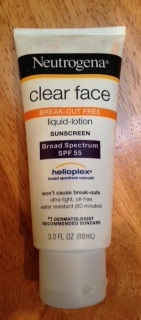
Coping with rosacea can be difficult, especially if your symptoms are severe. Symptoms of rosacea may include redness, inflammation, itching, irritation, tenderness, acne-like bumps, and dry, irritated eyes. Not only can rosacea cause physical discomfort, but it can also cause people to become very self-conscious about their appearance, leading to social difficulties. There’s no cure for the condition, but there are ways of managing rosacea so that it doesn’t have a significant negative impact on your life.
Learning to Manage Your Rosacea
We’ll provide you with some helpful tips for coping with rosacea. Rosacea is a complicated condition, however, because many different things can make symptoms worse, but what aggravates one person’s symptoms may have no effect on another’s symptoms. Keeping track of your symptoms and what things seem to make them worse will allow you to better manage your rosacea. Keeping a food diary can help you identify which foods trigger your symptoms, something that can be a bit challenging to determine since there are so many foods that are potential triggers.
Tips For Coping With Rosacea

Some fairly simple measures can help you cope with rosacea and lessen the severity of your symptoms.
- Wear sunscreen outdoors, even if it doesn’t seem very hot or sunny out. Excessive exposure to the sun often triggers rosacea symptoms.
- Wear minimal makeup, if any, and choose makeup and skincare products designed for sensitive skin or made specifically for people with rosacea.
- Avoid exposure to very cold weather and to wind, if you can. When you can’t, wear a ski mask or scarf to protect your face from the cold and wind.
- Take warm, but not hot, baths or showers. Hot baths and showers often make rosacea symptoms worse.
- Strenuous exercise often makes rosacea symptoms worse. Don’t avoid exercising altogether, but you may find mild to moderate exercise is better for you.
- Avoid alcoholic beverages and avoid or limit your caffeine intake.
- Avoid foods that trigger your symptoms. Many people with rosacea find symptoms get worse if they eat spicy foods or dairy products. You can read more about managing rosacea with the diet here.
- Some medications can make rosacea symptoms worse, including corticosteroids and some blood pressure medications. Don’t stop taking any medications without talking to your doctor first, but do talk to your doctor about any medication you take that might be causing your rosacea to get worse. Your doctor may be able to prescribe different medications that won’t have that effect.
- Treat your rosacea, especially when symptoms flare up. While there’s no cure, there are treatments that can help.
Treating Your Rosacea
Getting the right treatment is an important part of coping with rosacea. According to the American Academy of Dermatology, getting treatment for rosacea can make symptoms less noticeable, relieve discomfort, and improve your appearance. Perhaps most importantly, it can also prevent your condition from worsening.
Doctors sometimes prescribe medications, like antibiotics or acne drugs, for rosacea. In severe cases, they may recommend a procedure like dermabrasion, in which the top layer of skin is removed with a wire brush or a rough diamond wheel. If you’re cringing at the thought of that, well, we understand.
While medical treatments like dermabrasion may be necessary in some cases, often it’s possible to manage rosacea with kinder, gentler treatments. We particularly like the Skin Support System from Zenmed, which offers all-natural products including an anti-redness mask, a gentle cleansing cream for dry skin, and a facial cleansing gel for oily skin. Because these products are made from all-natural ingredients, they are very gentle on the skin. To learn more about our favorite skincare products for managing rosacea, just follow this link to the Zenmed Website.
AAD: Rosacea Treatment
